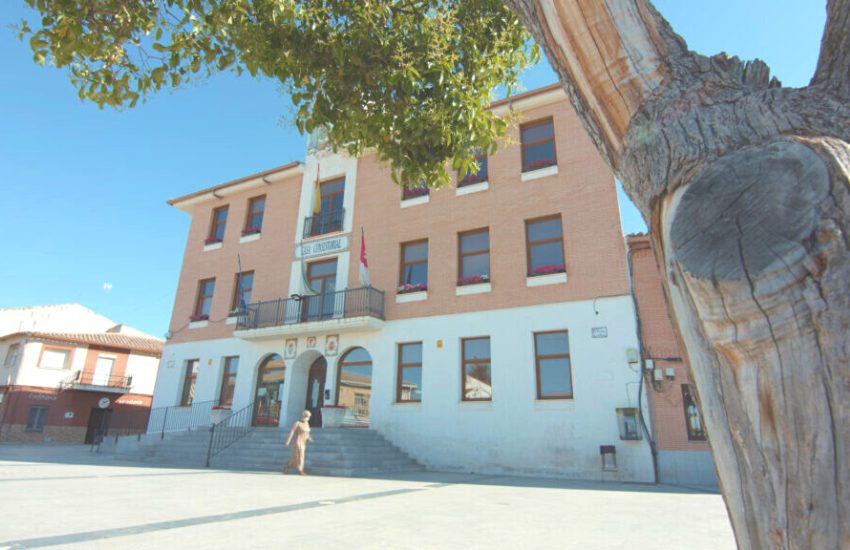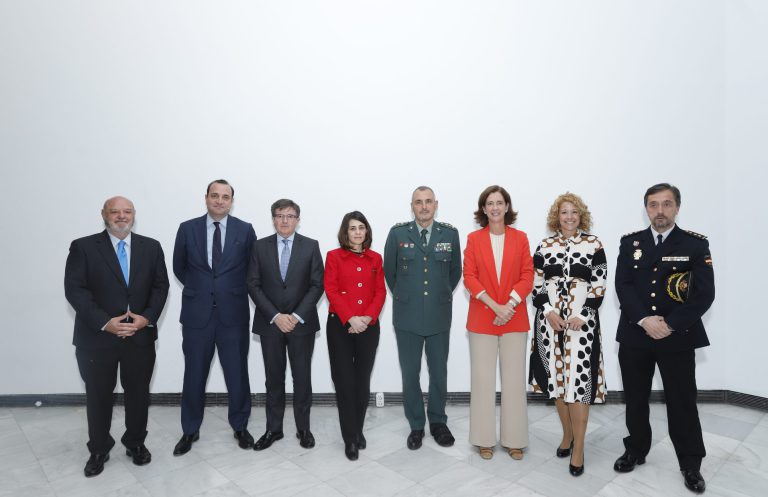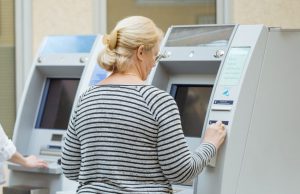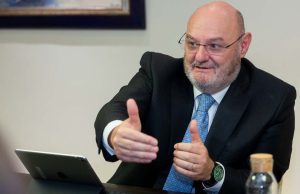They are the mirror through which we can see the origins of banking: they have deep territorial roots and offer a customised and quality service, especially to those who need it most. We travelled to the small town of Las Ventas de Retamosa to discover their work.
The future was not about everyone having a pair of flying cars on their doorstep or living on a floating home. It wasn't about travelling in the blink of an eye and appearing on the other side of the world. The future was depersonalisation, spending hours of time we don't have in traffic jams and becoming dependent on machines. We go shopping, we fill up with petrol, we buy online... And we do it all without interacting with anyone. In the mid-sized and large cities, this is completely normalised, but there is a better world. And it is located in that place known as the emptied Spain. And which, unjustly, is often belittled.
In rural areas, those great forgotten lands, there is still a trace of humanity, an immeasurable attachment to social relations, without networks, without likes, without ephemeral stories. People who greet the baker by name. Patients who do not need to wait for the doctor to read their medical history on the computer, because they know their records inside out. Bankers who alert you when a bill is due. What matters are the people.
A COMMITMENT TO A MORE HUMANE AND CUSTOMISED SERVICE
The large supermarket chains have not reached these towns in the emptied Spain. The old traditional grocery store survives, run by Antonia, Paco or perhaps Herminia's granddaughter, who tried her luck in the big city and discovered that city life was not for her, that life in the village was better.
Who returned, adding her story to the heart of a town that, although the passage of time would like to kill it, continues to beat with more passion than ever. After all, whoever stays here, whoever carves out their history on the cobbled paths of their town, is someone who really loves the place. It doesn't matter if they spend their entire life in that municipality, if they return after a few years away or if they borrow it for a period of time. Everyone is welcome in the villages and everyone is part of the family.
There are also no hospitals, let alone fast food franchises. The traditional bar is still there, as are the regulars who come every Sunday afternoon to have a vermouth, a beer or a soft drink for less than a euro. And if it is accompanied by a tapa of a good local cold meat, all the better.
But there is something that is still needed in these towns: money. Although they are stoic in the face of an increasingly capitalist world (they don't live in the rat race, thank goodness), they do need money for everything. Like everyone else. The modern world does not make it easy for a population that is, more often than not, ageing and not digitally literate. According to the Bank of Spain, 1.3 million people are in a situation of vulnerability in terms of access to cash and other financial services.
For this reason, financial institutions have not abandoned these regions and have continued to provide service, staying true to their commitment to the territories, offering these services differently. In this regard, CECA member entities (CaixaBank, Kutxabank and Cajasur Banco, Abanca, Unicaja Banco, Ibercaja Banco, Caixa Ontinyent, Colonya Pollença and Cecabank) have long-standing initiatives to ensure access to basic services, such as withdrawing cash, paying bills by direct debit or making a deposit.
This is why financial agents are so important in the towns of the emptied Spain, as they allow the residents to continue to conduct their financial affairs in a normal manner.
THE ROLE OF FINANCIAL AGENTS IN THE MORE RURAL SPAIN
Institutions operating in rural areas play a different role in comparison to branches in large cities. With a very close and personalised service, they help the population, attend to their needs and continue to provide an essential service for everyone.
This is how Luis Dorda Echavarri, Unicaja Banco's financial agent in Las Ventas de Retamosa, a small town in Toledo with just 3,600 inhabitants, explains it. Dorda says that "working in a rural institution in a municipality of this type means attending to needs, especially those of the elderly: accompanying them to the ATM, showing them the new models or explaining how digital banking works".
Financial agents are always available, at all times and under all circumstances, because they are an essential part of the community and that is why their vocation is to provide solutions for their neighbours and their finances, a job that involves, first and foremost, help and support.
In many cases, moreover, they are people with strong territorial roots, often locals of the town. They work autonomously, but with the support of the banks, to offer maximum coverage and the best quality service to the inhabitants of these towns.
A quality that reduces the importance of automation and puts all the emphasis on personalisation, on the human touch, on the trust of the financial agent, who is also a neighbour. Many of them even offer their personal mobile phone number to those who need it, because in addition to being their customers, they are their friends.
Financial inclusion is now more important than ever. They are one of the solutions to branch closures in less populated areas, together with others such as: the cash service that banks offer customers at post offices, what is known as Correos Cash; cash-back, a system that is implemented in collaboration with shops or catering establishments, allowing citizens to pay by card more than the amount of their purchase and receive the difference in cash; and the ofibuses, mobile branches that guarantee service to the rural network and foster proximity to the customer.
They are part of the future, those who continue to make life kinder, more human, less strange, as in the words of that song that has already aged too, even though it seems that we were listening to it just yesterday. They do their bit so that life in the town continues to be an oasis in the midst of the desert of humanity, the calm in a storm marked by the frenetic pace of the capitals, the hope in a world of likes and selfies because what really matters are the people.













